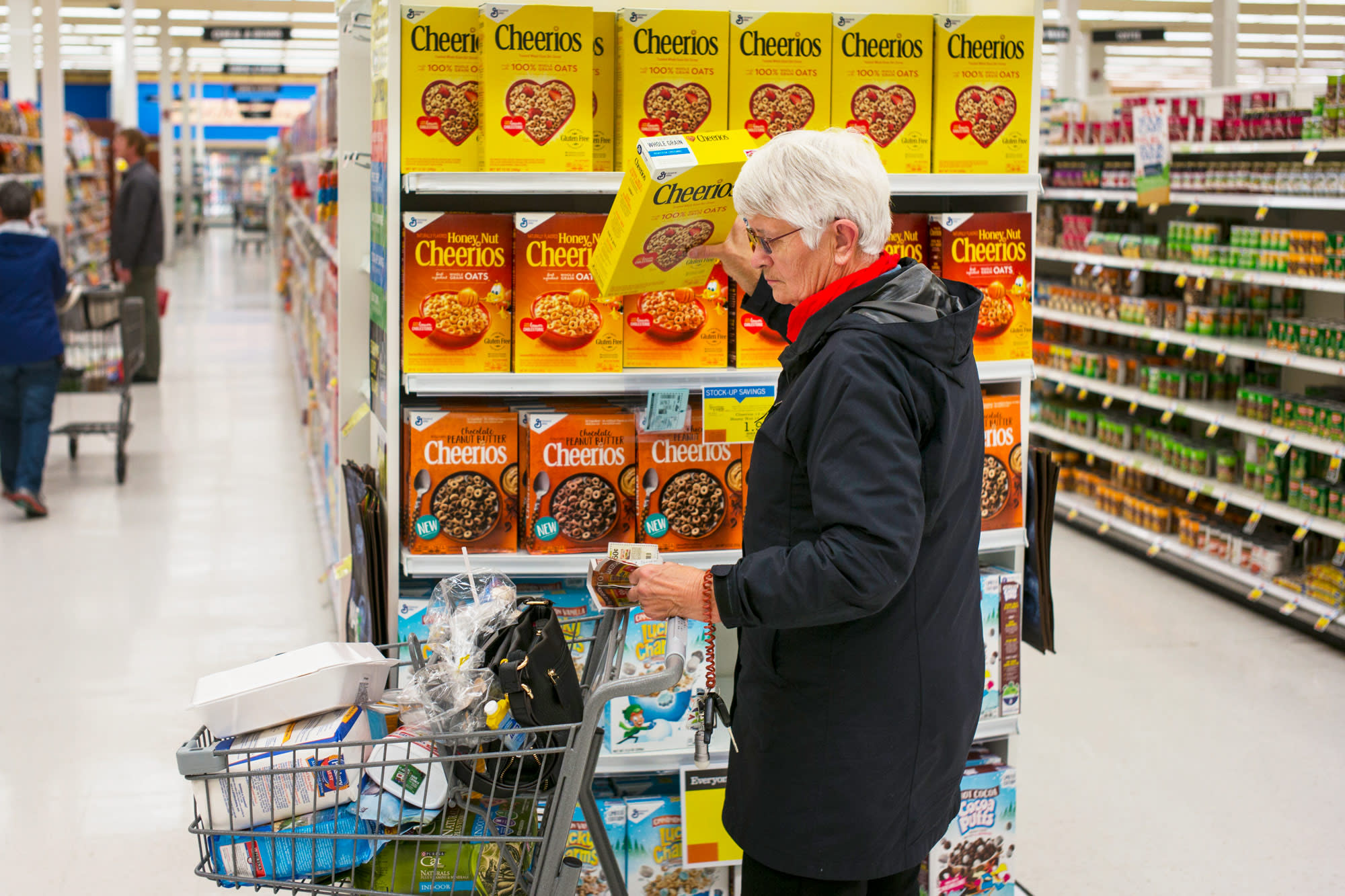
A woman shops for Cheerios cereal at a Price Chopper supermarket in South Burlington, Vermont.
Robert Nickelsberg | Getty Images
General Mills‘ plan to revive cereal sales includes a $13 box of the breakfast food.
The new Morning Summit cereal, which was launched in late 2019, lists almonds as its first ingredient in a bid to attract health-conscious consumers who may have stopped eating cereal for breakfast.
“Our strategy to drive continued cereals growth is centered on launching compelling innovation that offers taste, convenience and health benefits, while investing in brand building,” CEO Jeff Harmening said at the annual Consumer Analyst Group of New York (CAGNY) investor conference on Tuesday. “That engages consumers and gives them another reason to walk down the aisle.”
Other recent releases include Blueberry Cheerios and GoodBelly probiotic cereal.
U.S. cereal sales have gone stale in recent years as consumers choose more protein-packed breakfast options or skip the early morning meal entirely. But after several years of declining sales trends, the $8 billion U.S. cereal market’s sales were flat in 2019, according to Harmening.
“We believe this category improvement has been driven by a combination of our stronger performance and some improving macro and demographic trends, including a stabilization in the balance of breakfast at home versus away from home, as well as a return to growth and the number of households of kids in the U.S.,” Harmening said.
More than halfway through the company’s fiscal 2020, the company’s U.S. cereal retail sales have risen 2%. Kellogg, which makes Rice Krispies and Frosted Flakes, has seen consumption of its own cereal lag, with U.S. sales declining less than 1% in its fourth quarter.
Cereal isn’t the only segment that General Mills is trying to revive. The food company is also trying to boost sales of its yogurt and granola bars. Still, executives said General Mills is on track to deliver its fiscal 2020 targets, including organic net sales growth of 1% to 2%.
General Mills’ stock, which has a market value of $31.9 billion, was down 1% in morning trading after the company said it had closed nearly half of its Haagen-Dazs ice-cream stores in China due to the COVID-19 outbreak. Shares are up 17% over the last 12 months.
Leave a Reply